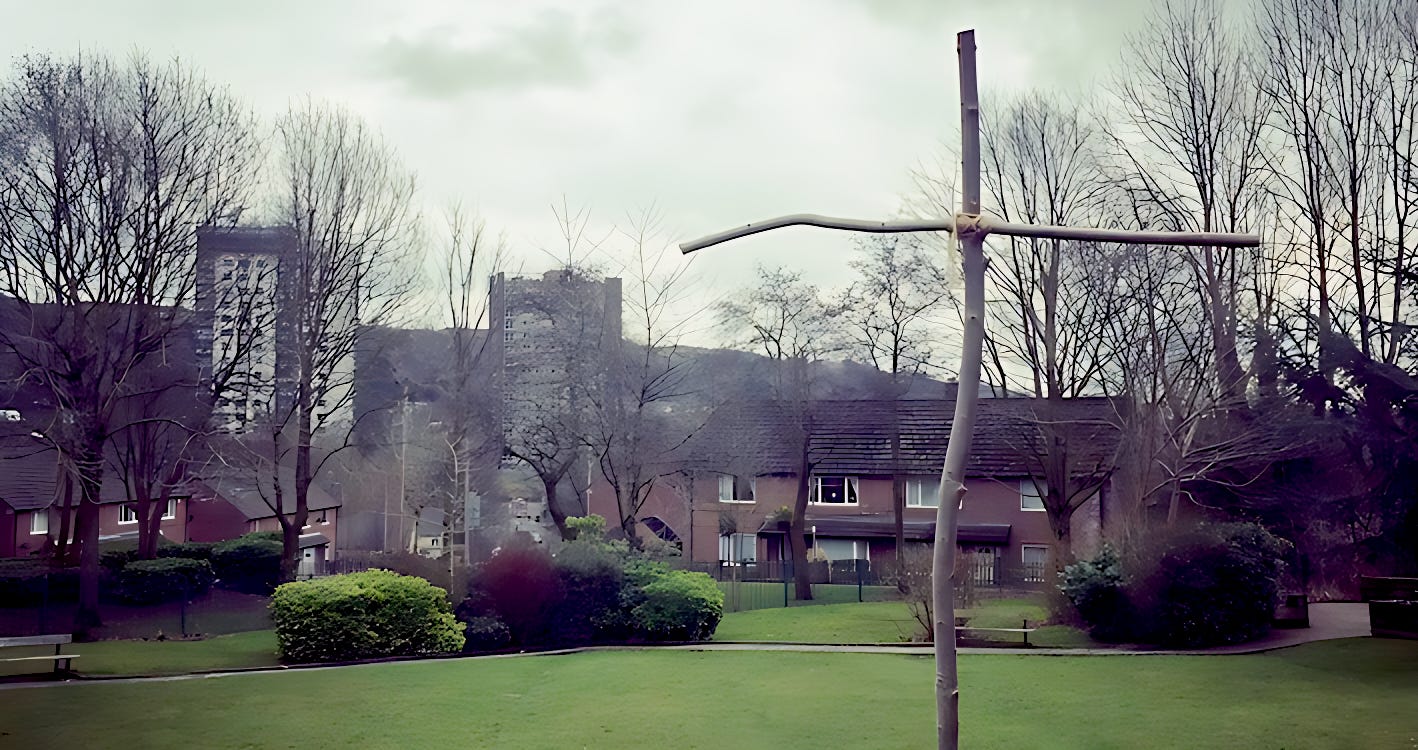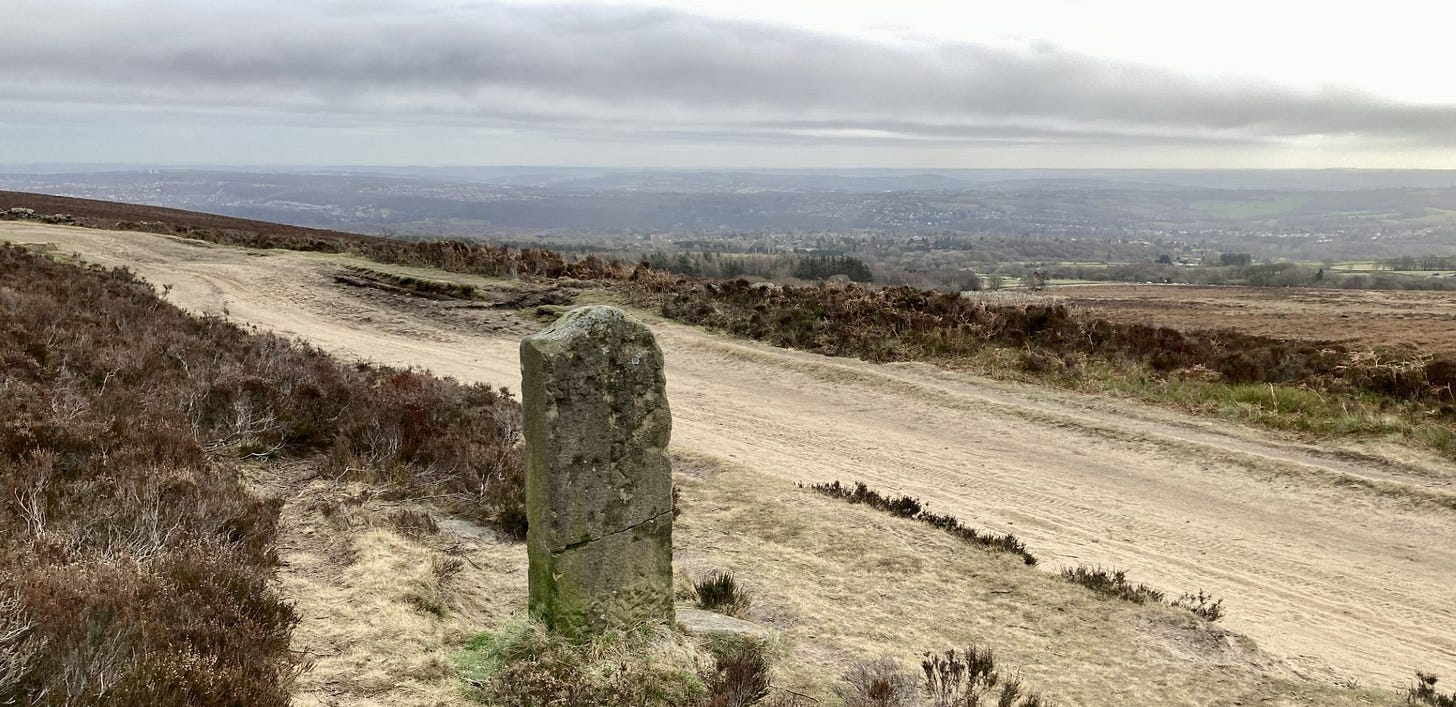Dear Friends,
Welcome to the T4CG Newsletter for the Easter Season, our first edition from Substack.
Over the fifty days leading up to Pentecost, we encounter the formation of the first Christian communities. In our liturgies we read in the book of Acts how the Holy Spirit galvanised a group of frightened disciples into a community capable of evangelising the world. As we revisit this scripture, we are prompted to imagine what it will take to become such a people in our own time.
This year has extra significance. In a rare occurrence, the Gregorian, Julian and Hebrew calendars calculations meant that not only did Eastern Orthodox and Western Catholics celebrate Easter on April 20, but the Jewish people also concluded their Passover celebration on the same date.
Almost from the beginning of the Church, Christians understood that the Passion and Resurrection of Christ was the completion of the Festival of Passover, signifying that the Lord’s deliverance of the Israelites from slavery in Egypt was only the foreshadowing of the Resurrection of the Lord and of the deliverance of humanity from sin and death. Thus, Resurrection Day became known as the “Paschal Mystery”, after the Hebrew word for Passover: Pasch.
What does it take to become a people of the Resurrection? As Pope John Paul II famously said, ‘We are an Easter people and Alleluia is our song.’ Drawing on Augustine’s exposition on Psalm 148, he was indicating that being such a people is not just for a day, nor just for a season, we are called to a way of life. He goes on to qualify what the Easter season should mean for us: ‘We are not looking for a shallow joy but rather a joy that comes from faith, that grows through unselfish love, that respects the fundamental duty of love of neighbour, without which it would be unbecoming to speak of Joy’. Easter must not be domesticated.
This way of life, this fundamental duty of love of neighbour - which was also a great theme for Pope Francis too - is a call to action for our Pascal Season. But how do we avoid the temptations of a ‘shallow joy’?
To be a people of the Resurrection, we must enter the depths of the Crucifixion. The silence and darkness of Holy Saturday provide us with the necessary disorientation. We must carry this with us through the Paschal season - this place where everything seemingly has come undone. It is a place not to be fixing things, but just to be. There is perhaps a sacramentality to the nothingness. We are to go into the humiliation and the pain of our Lord, uniting our pain with His. In this place of surrender, we can begin to see the world from the perspective of the crucified Christ. We can pray along the lines of, ‘unite me with your wounds Lord, let it be a blessing for me to experience your suffering and to share with you the view from the cross.’
Our Lord was a man of sorrows acquainted with grief. As we enter into the contemplation of the Crucifixion, we notice his grave expression. We begin to see the way He sees. Joining with His pain leads us to see with His great compassion but also His uncompromising truth. We see the foolishness, the cruelty, the madness of crowds. We see the crushing of the human spirit in unemployment, the evil of assisted suicide, the horror of aborting babies, the terror of every girl or woman raped, the humiliation of loneliness, the persecution of the faithful for their beliefs, the violence of war, the corruption of demoralisation, the intimidation of those with the courage to tell the truth about biological sex. There are many more crucifixions. The view from the cross is the place of most clarity. It is where the evil of the world is most easily perceived.
This calling to see and to respond is not easy. But this is not a time for a complacent church. In Amos 5, God condemns worship, even sincere worship, if the everyday life of the faithful fails to manifest justice and righteousness in their attitude to, and solidarity with, the poor and those who suffer injustice. Worship and life must be of one piece, not separated or compartmentalised.
This Paschal mindset does not avoid difficult issues in an “out of sight, out of mind” kind of way. It calls us to resist the temptations of indifference and moral squeamishness and to be a people with the courage to notice, listen and act in solidarity. It calls us beyond the concerns of our personal salvation journey to a ‘fundamental duty of love of neighbour’, including the love that strives to reform the structures of sin that blight our country.
Pope John Paul II was profoundly concerned that neoliberal economies were undermining the inherent dignity of human work. Drawing deeply on Scripture, his 1981 encyclical Laborem Exercens called for a political economy with dignified work as the cornerstone. He believed that it is ‘through work’ that a person ‘achieves fulfillment as a human being,’ and participates in God’s creative plan.
Examining the realities of contemporary economies, John Paul rejected all systems which undermined the dignity of the human being. This was a man who had experienced Nazi occupation first hand, who encouraged the „Solidarność” labour movement in Communist Poland, and who was aware of widespread exploitation of workers and the commodification of labour in so-called free markets, especially in poorer countries. Just as his predecessors had done, Pope Francis, the great champion of the poor - may he rest in peace - also warned about this inherently unstable ‘economy of exclusion and inequality.’ He said, ‘such an economy kills.’
We are now seeing major geopolitical shifts. Globalisation is breaking down, and the long-predicted end of neoliberalism brings opportunity. The new era is fraught with uncertainty and yet there is space to shape the future: we are called to help create a civilisation of love. For each of us, it means finding our own unique way of making a constructive contribution, however small.
The protection of human flourishing requires the rejection of techno-feudalism and the building of a common good political economy, a system based on the dignity of decent work. For the churches and Christian charities, this means a rejection of welfarism and a shift in posture from service to solidarity.
To be a Resurrection people we must not only express joy. Our Lord, who does not shy away from hard questions, is as close to the sorrows and injustices of the world as he is to the joys. Having encountered the meaning of the Crucifixion, we must ask God to preserve in us that ability to discern good from evil. Our Lord was killed by an oppressive Roman regime. Today, we must not turn away from the Crucifixion of good people by the principalities and powers of our own time.
During his visit to Liverpool, John Paul II prayed, ‘Lord, Restore Your Church on Earth Through the Gifts of Penance and Reconciliation.’ This means penance for the times we turned away and reconciliation with the people we have forgotten. The radical reality of this Pascal season is about deliverance. We are called to be an Easter people, for whom Easter isn’t merely a day or even a season. It’s a life of resurrection where we die and are reborn every day.
Wishing you a blessed Easter season.
Jenny Sinclair and all the team at Together for the Common Good
*****
RIP Pope Francis
Mourning the death of Pope Francis, we recall a man who longed for “a Church which is bruised, hurting, and dirty because it has been out on the streets, rather than a Church which is unhealthy from clinging to its own security.” He did not please everyone, but he embodied the principle of the preferential option for the poor. In his struggle to refocus ecclesial priorities, he fought for a more personal Church, and his encyclicals, Laudato Si, Fratelli Tutti and Dilexit Nos expressed God’s love for human life and creation. Our good and faithful servant has been called home to the Lord. May he rest in peace.
In this edition
Welcome to our Substack platform! Many of you have previously received the T4CG Newsletter via Mailchimp. I hope you enjoy this new platform – if you haven’t discovered Substack before, I am sure you will find it useful. Over the coming months we’ll be developing further content here as and when our capacity allows. We are a very small charity making a big impact, but this is only possible with your support.
Demand for this work is growing so if you like what we do, please consider upgrading to a paid subscription.
Read on for our latest featured content. We hope you find this helpful.
Signs of the Times
Explore our Signs of the Times page with our latest collection of articles from across the media on the state of the UK, geopolitics, the changing church and the emerging challenges to humanity. Plus a few recommended books.
Building the Civilisation of Love: an Introduction to Catholic Social Teaching
Building the Civilisation of Love: an Introduction to Catholic Social Teaching – this was the focus of a session our Director Jenny Sinclair gave for East Brighton Parish, a dynamic and diverse church community becoming more and more connected with their neighbours. Click on the link for text, slides and a recording.
Leaving Egypt Podcast
In our Leaving Egypt podcast, co-hosts Jenny Sinclair and Alan Roxburgh explore with guests what it means to be God's people in an age of unravelling. Guests come from across the Christian traditions to help Jenny and Al read the signs of the times and hear stories of hope from the grassroots. We are sure you will enjoy our latest episodes:
Sally Gaze, Archdeacon for Rural Mission in Suffolk, in God's Mission in the Rural
Bejoy Pal, the CEO of Ascension Trust, in The Investment of Love
Adrian Pabst, leading postliberal thinker in Wisdom in Disconcerting Times
More exciting episodes are on the way in the coming months with guests Samuel Luak, Jo Gilbert, Rodney Clapp, Susannah Black Roberts - and many more to come. The Leaving Egypt community is growing, now with listeners in over 90 countries. It's easy to join and free to subscribe.
Challenging Power, Changing Practice and Deepening Spirituality
Challenging Power, Changing Practice and Deepening Spirituality is a new paper Jon Kuhrt and Jenny Sinclair have written about the challenges facing the future of Christian social action as poverty is getting worse. Building on growing momentum since the T4CG lecture given by Jon last year, this paper reports on a retreat we held before Christmas with 36 CEOs/leaders and sets out how our sense of how God is reshaping Christian charity in this time of great change.
Pilgrimages of Grace: Walking towards the Common Good
Pilgrimages of Grace: Walking towards the Common Good is a story by Phil McCarthy who proposes walking pilgrimage as a humble witness to challenge the forces that undermine the common good, and shares news of a special pilgrimage coming up this September.
Promises to Place
Promises to Place is a story of a pioneering contribution to a place and its people, in which the Church fulfilled a valued and transformative role as a civic partner. Francis Davis explores the calling of Mgr Nicholas France and the extensive impact of his unique witness.
Assisted Dying
The Report Stage of the Assisted Suicide bill is May 16. Even if you have already done so, it is still important to contact your MP as a matter of urgency. Our Assisted Dying guidance sheet will help you compose a letter.
In other news
Our Common Good Schools programme has growing momentum. Please pray for all our partner schools running the secondary KS3&4 resource, for all the new schools joining, and for our project leader, Jo Stow as she writes and pilots a new resource for KS2 between now and the autumn. We’re thrilled that 40 primary schools will be piloting the new primary programme. We are seeking someone to fulfil a part time support role: if you can help, have a look at the details here.
We are delighted to announce that Susannah Black Roberts, editor of Plough Quarterly, will be our speaker in the autumn as part of the T4CG Staying Human Public Talks series. A date for your diary: Susannah’s talk will be livestreamed at 6.30pm on October 21st. More information will follow in due course and other speakers will be announced soon.
Thank you
Thank you for reading this far. As ever, our aim is to inspire and support you. Drawing on the Catholic Social Thought tradition, all our work aims to encourage people to play their part in spiritual and civic renewal. The demand for this work is growing. Please consider taking out a paid subscription to help us continue.











